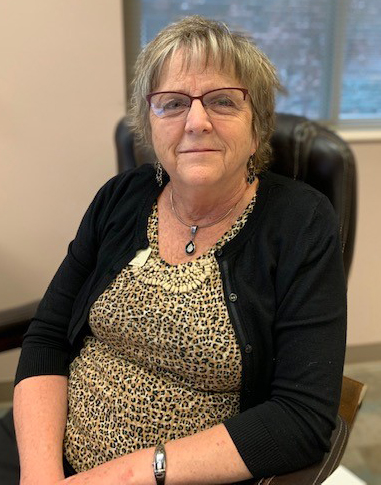Innovative Training Program Open to Help Caregivers Combat COVID
Virtual training centers invite nursing centers across the country to bring their perspectives and experiences to share with peers and hear new ideas.
Jane Davis
11/23/2020
 I had little idea what I was getting into when I agreed to
participate in an innovative pilot program to help nursing home administrators
and frontline staff combat the spread of COVID-19.
I had little idea what I was getting into when I agreed to
participate in an innovative pilot program to help nursing home administrators
and frontline staff combat the spread of COVID-19.
But I was willing to try almost anything to prevent another
wave of sickness, suffering, stress, and uncertainty like the one that hit our
facility in April and May.
All Are Welcome to Join
Now that effort’s gone national. The AHRQ [Agency for
Healthcare Research and Quality] ECHO National Nursing Home COVID-19 Action
Network launched this month with training centers and nursing homes around the
country joining new virtual communities of practice.
And, after participating in the pilot program, I’ve signed
up again, because what the COVID-19 Action Network offers—not only education
but mentoring and a peer community—is that valuable right now.
Working at nursing homes during this pandemic, so many of us
feel like we’re carrying the weight of the world on our shoulders, with hardly
any support. The stress takes a terrible toll. Even worse, because there’s so
much still unknown about this virus, we worry that we’re missing things—things
that could help keep our residents safe.
Support and Mutual Respect
Participating in the COVID-19 Action Network brought me to a
new place—a place where I could share my perspective and experiences, where I
could learn from the experiences of my peers, where I could hear new ideas and
think differently. It was a place of collaboration and mutual respect where I
didn’t just passively receive wisdom and best practices from the experts. I
contributed my own, and it was valued.
And, perhaps most of all, it was a place where I felt
supported. My staff and I were not alone—far from it. Being in the Network
reinforced that we truly are all in this fight together.
A Collaborative Approach
The Network is led by three organizations: the federal AHRQ,
the Institute for Healthcare Improvement (IHI), and Project ECHO. Together, they
created the initiative to prevent and reduce COVID-19 in nursing homes—not
through regulation or compulsory programs but through voluntary, collaborative
learning.
Here’s how it works: Training centers across the
country—mainly academic medical centers or large health systems—run virtual
communities of practice on Zoom that are staffed by experts in infection
control and gerontology. Staff from up to 35 nursing homes participate in these
communities of practice.
Each Zoom session (there are 16) kicks off with a quick
lecture on a topic like Personal Protective Equipment (PPE) use and then moves
on to real-life case presentations that spark a lot of hands-on discussion and
problem solving.
Everyone participates in the sessions. Everyone’s experience,
observations, and questions are honored and valued. That’s what made it so
different. We weren’t just there to learn. We were there to share with each
other, and even teach each other—as well as the experts, who wanted to know
about our on-the-ground experiences to inform their own perspectives.
More Than Worth It
After only one or two sessions, I was hooked. I didn’t want
to miss a single session because of what I was learning, the support I was
receiving, and the relationships I was building. After the 16-session program
ended, I found myself missing it.
People sometimes ask me what it was like when the pandemic
peaked this spring. I tell them I never experienced anything like it before and
never want to again.
That’s why I “re-upped.” As a nursing home administrator, I
want to do everything in my power to beat this scourge and protect our
residents and our staff. I’ve learned that when we come together to learn with
and from each other, we can create something powerful: the knowledge and
support to move forward and succeed.
We are not alone—and we shouldn’t be. I urge others to join the
COVID-19 Action Network now.
To learn
more about the AHRQ ECHO National Nursing Home COVID-19 Action Network,
visit https://hsc.unm.edu/echo/institute-programs/nursing-home/pages/nursing-home-info.html.
Jane Davis is administrator for Hyatt Family Facilities at
Landmark Care & Rehabilitation in Yakima, Wash. Starting out in assisted
living in 1993, Davis has been a licensed nursing home administrator since 1998
with licenses in six states. She has practiced in Washington state, Texas,
and South Carolina during her career. She can be reached at Jane@hyattff.com.